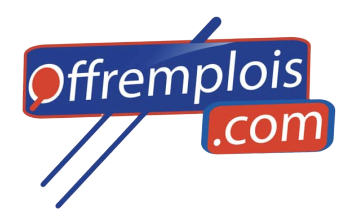The US Embassy Dakar hiring Public Health Specialist.
Salary: 29,275,409 CFA/year
Application deadline: 03/26/2021
Job description
The Public Health Specialist (Surveillance) serves as the epidemiologist responsible for providing technical expertise and assistance to the Ministry of Health and Social Action (MSAS) and other participating partners. S/he will support in the design, implementation and strengthening of routine disease surveillance systems, conduct large, complex surveys designed to measure reportable infectious diseases, evaluate the impact of disease control programs and serve as training advisor / facilitator in national epidemiology and surveillance training programs.
Carrying out these functions requires public health technical knowledge, results-oriented data analysis, extensive experiences in the management of field epidemiology training programs (FETP), and the ability to facilitate communication and maintain collaborative working relationships with partner organizations.
Job requirements
Experience
At least five years of mid- to senior-level public health experience in the management and development of epidemiological surveillance or disease prevention programs. Extensive experiences in the management and development of epidemiological surveillance training programs such as Field Epidemiology Training Program (FETP). Extensive experiences working directly with the Ministry of Health and Social Action in supporting surveillance training programs. Previous experiences working for the Ministry of Health and Social Action at the national and sub-national level a must.
Job knowledge
Job holder is required to have detailed knowledge of research methods and the collection, analysis and presentation of public health/epidemiologic data in order to plan, design, direct the implementation of and strengthen procedures for collection, analysis and dissemination of emerging disease epidemiological data.
This includes knowledge of the principles, theories and practices of internationally recognized standards for surveillance and survey regulations and procedures. Job holder is required to have strong understanding of Integrated Disease Surveillance Response (IDSR), District Health Information System (DHIS2) and Expanded Program on Immunization (EPI). Detailed knowledge of the host government health care system and structures including familiarity with Ministry of Health and Social Action policies, program priorities and regulations is required.
Education Requirements:
M.D. or Ph.D in health sciences with Masters {Master of Public Health (MPH), Master of Science Public Health (MSPH) Degree or host country equivalent in public health, public health policy, epidemiology, demography, or behavioral science is required.
Language
Level III (good working knowledge, speaking, writing) in English is required. Level IV (fluency-speaking/reading/writing) in French is required.
Skills and abilities
- Strong analytical skills to readily understand and discuss new surveillance program design, management, and implementation approaches are required. This includes the development of evaluation designs, use of reliable and valid instruments, and methods for data collection, analysis and reports.
- Excellent oral and written communications skills are required to develop and maintain effective, sustainable working relationships with national and international working partners and to prepare substantive and analytical reporting.
- Proven ability to teach and provide trainings on surveillance and field epidemiology principles.
- Strong management skills are required to operate independently with limited direct supervision of day-to-day activities and to lead results-driven project teams and workgroups.
- Excellent overall computer skills (keyboarding with both speed and accuracy) and advanced skill levels in use of at least one of the more common epidemiologic data analysis software (EPINFO, STATA, SAS, or SPSS) is required.
- Ability to persuade others, ingenuity and innovation will be required to influence collaborative organizations engaged in disease prevention, treatment and care programs to adopt appropriate strategies for improving the surveillance and survey process.


















Commenter